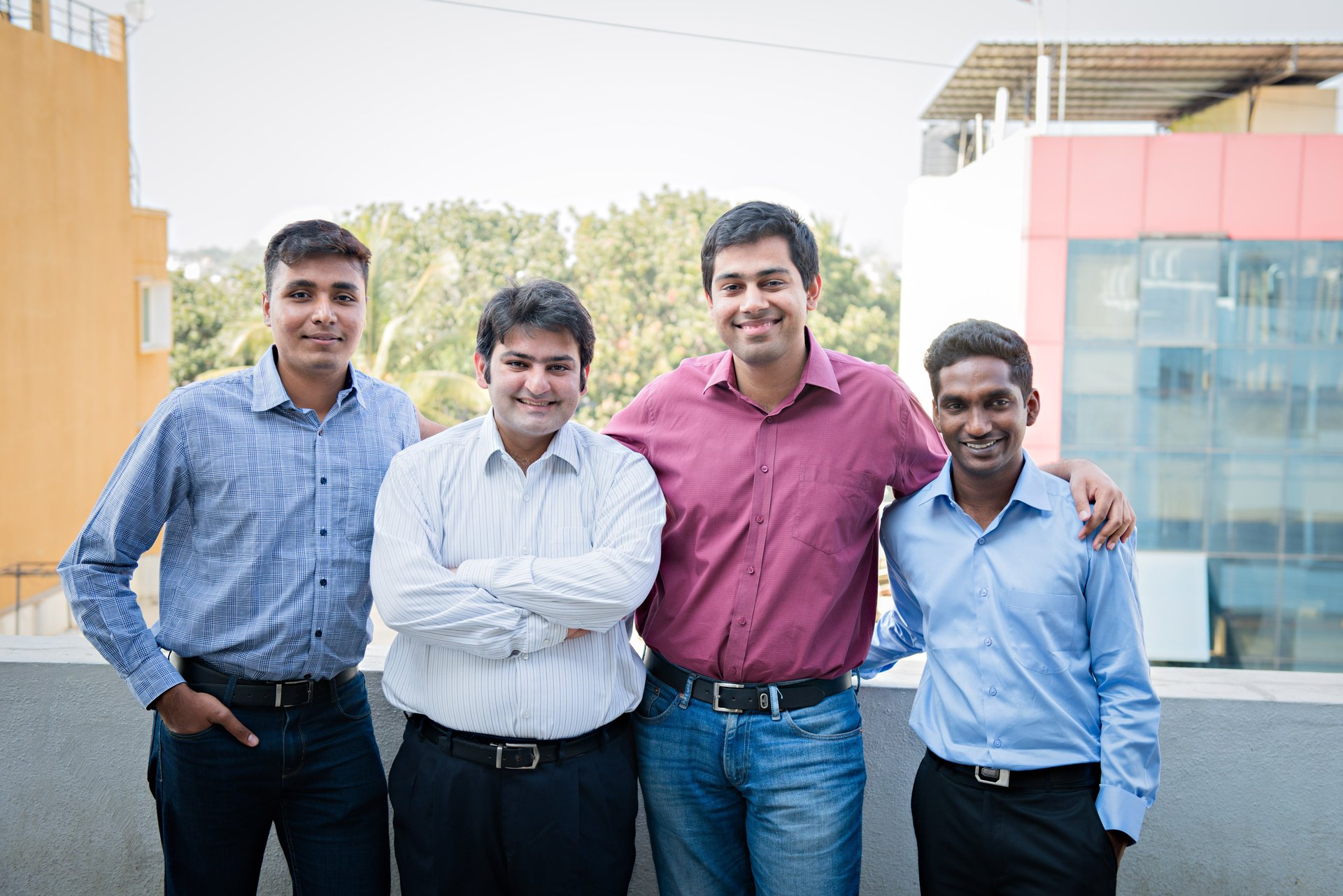An Indian recruitment startup is using artificial intelligence to become a “Google for people”
Belong, a Bengaluru-based startup, is creating a “Google for people,” as co-founder Rishabh Kaul describes it.


Belong, a Bengaluru-based startup, is creating a “Google for people,” as co-founder Rishabh Kaul describes it.
The three-year-old recruitment firm is part of a new crop of companies using technology to simplify hiring processes, from sorting resumés to scheduling interviews. Belong, however, goes well beyond all that.
It scours the internet to unearth publicly available information on any and all possible candidates, including scanning their Twitter accounts, Facebook pages, LinkedIn profiles, and more. ”Earlier, a resume was just like a balance sheet—what you declare about yourself at a given point of time,” explained Kaul. “Now, you have a rich stream of constant data.”
After gathering copious amounts of information, the platform ranks potential hires according to their suitability for a role at a particular company—much like how Google tailors search results for each user’s query.
Belong stands out also because it seems to have cracked the code by selling its product to an impressive clientele. This list spans e-commerce behemoths Amazon and Flipkart, telecom provider Airtel, ride-hailing services Ola and Uber, and online grocer BigBasket, among others.
Talent hunt

Founded by Kaul, Vijay Sharma, Saiteja Veera, and Sudheendra Chilappagari, Belong’s basic proposition is simple: using artificial intelligence (AI) and machine learning to curate data from social media activity, and from niche platforms such as GitHub, ResearchGate, and Muckrack. “The technology acts like a magnet, finding different pieces of data on every white-collar person,” said Kaul.
The system scans all profiles with uniform precision to match every candidate to a company’s search requirements and previous hiring patterns. Where there is no precedent—say, if the company is setting up a centre for a new technology like the Internet of Things (IoT), or is expanding into an unexplored geographical region—Belong works with the employer to manually feed in ideal candidate profiles.
As companies approve and reject suggestions, the machine learning algorithm learns from the choices and fine-tunes the results further. However, Belong’s system does not eliminate candidates, it only re-orders them. So, while the grunt work is done by technology, the decision-making still lies with the human resources (HR) managers. “We want to make them (the managers) into Ironmen and Ironwomen, so we are being the Jarvis,” said Kaul.
The main cash cow for Belong, which has raised $15 million so far, is annual contracts. Kaul did not reveal how much it charges but said, “typically we need (companies) to hire at least 30 to 40 lateral people in a year for it to make return-on-investment sense.”
Between June 2015 and March 2016, Belong posted revenue of Rs83.2 lakh ($127,000), according to regulatory filings sourced by data platform Tofler. Overall, the company recorded a net loss of Rs6.41 crore ($979,000) during the same period.
Bigger and better
This technology-led process casts a wider net for talent and covers more volume in lesser time than humans can. Besides, it targets not just active jobseekers but even passive talent—those who haven’t even thought of quitting their jobs yet. And connecting with them is merely a matter of clicking a button.
“Can a recruiter write a great email to a candidate to excite them? Yes,” said Kaul. “Can they do it for 500 people or send 3,000 emails? I don’t think so.” AI, though, can tailor messages for a multitude of applicants, saving recruiters between 15 hours and 20 hours of work each week while keeping things personal, Belong claims. The platform also tracks the right time to approach someone based on factors like appraisal cycles at their current company and how often they change jobs.
“We have made offers for highly complex roles in about 10-14 days on the platform,” Abhinav Asthana, CEO and co-founder of tech company Postman, which has recruited via Belong for over a year, told YourStory. At health-tech firm Practo, Belong improved the offer acceptance rate by 65% while Tavant Technologies reported a 55% hike in candidate responses.
As AI becomes smarter, it could even conduct first-round interviews virtually, ensuring “better utilisation of a recruiter’s time and resources,” N Shivakumar, business head of recruitment process outsourcing at Teamlease Services, told Quartz. Overall, it’d help shorten hiring timelines.
Automation also helps curb biases, Kris Lakshmikanth, founder of HeadHunters India, told Quartz. Belong removes political affiliations, religious views, sexual orientation, and other extraneous factors. (The company includes gender so recruiters can exclusively search for women to up diversity. No company can search for only men, though.)
While the algorithm struggles at times—if a person’s Twitter name differs from the real name or if multiple social media pages appear for someone—Belong’s intelligent filtering mostly improves efficiency and saves time. It, however, falls short with personable traits.
Cookie-cutter categories like college degree and technical skills are easy to track but AI is no match for experienced human managers with seasoned instincts when judging if a candidate will fit into the office culture or if they are a team player, HeadHunters’ Lakshmikanth added.
Still, Belong has made attempts to quantify ambiguous descriptors. “(To) make the word entrepreneurial into something mathematical that you can search for…the platform looks for people who’ve scaled something small into something big or people who’ve been with a company since founding,” Kaul explained.
Similarly, someone may be classified an early adopter based on when they joined Twitter. ”In 2007, being on Twitter was a big deal. No one knew about it,” said Kaul, “This person would have been on the lookout (for new technologies) rather than someone who joined in 2013, by which time even Amitabh Bachchan had joined.”
And just like human HR managers get better over time, Belong is betting that the machines will too.